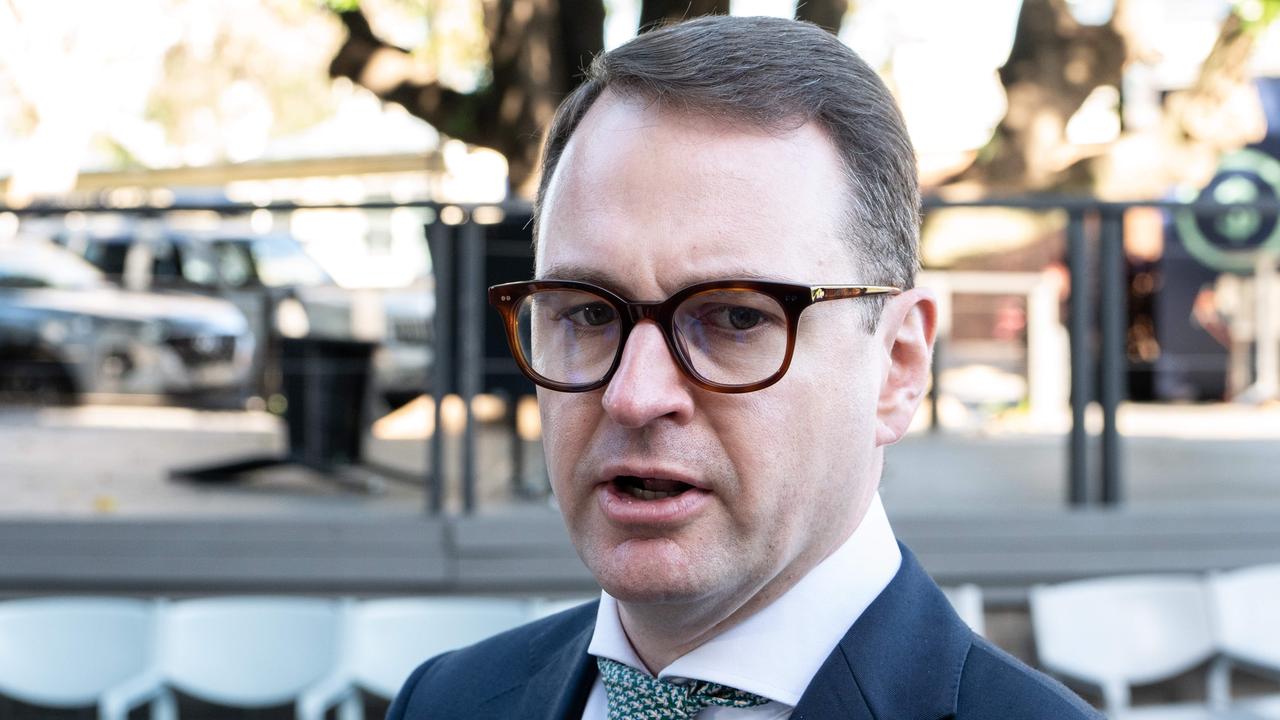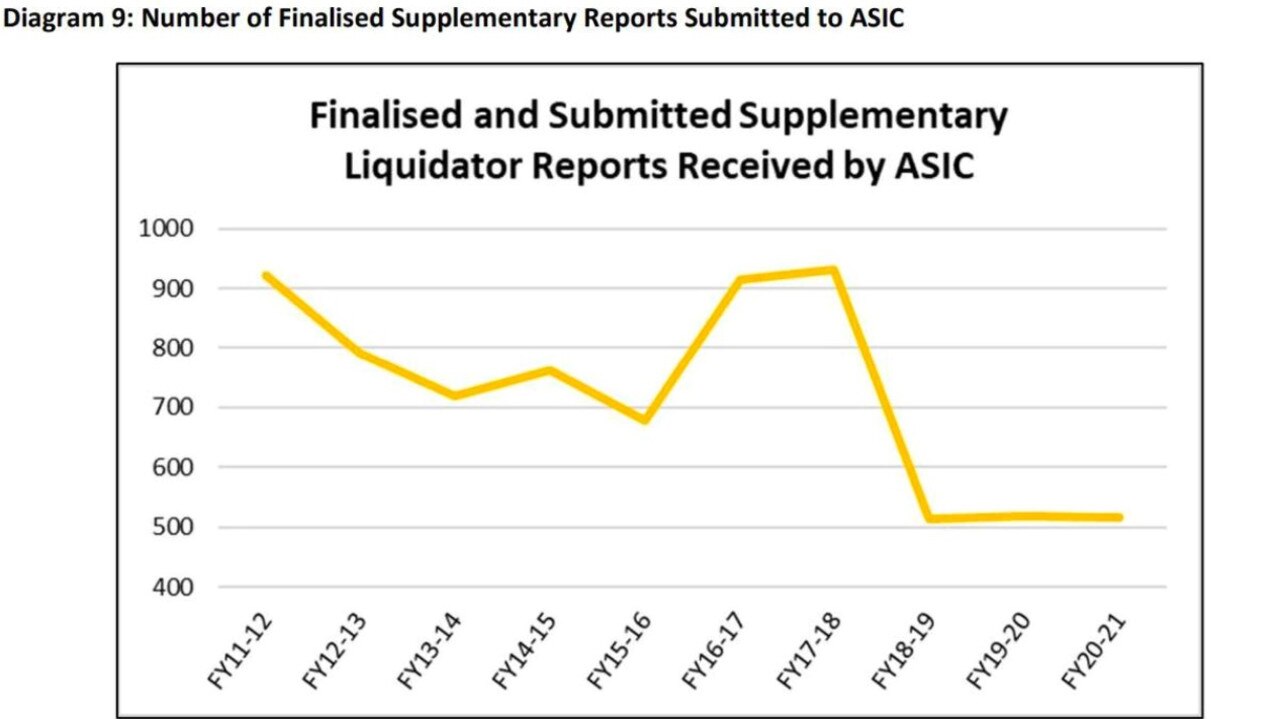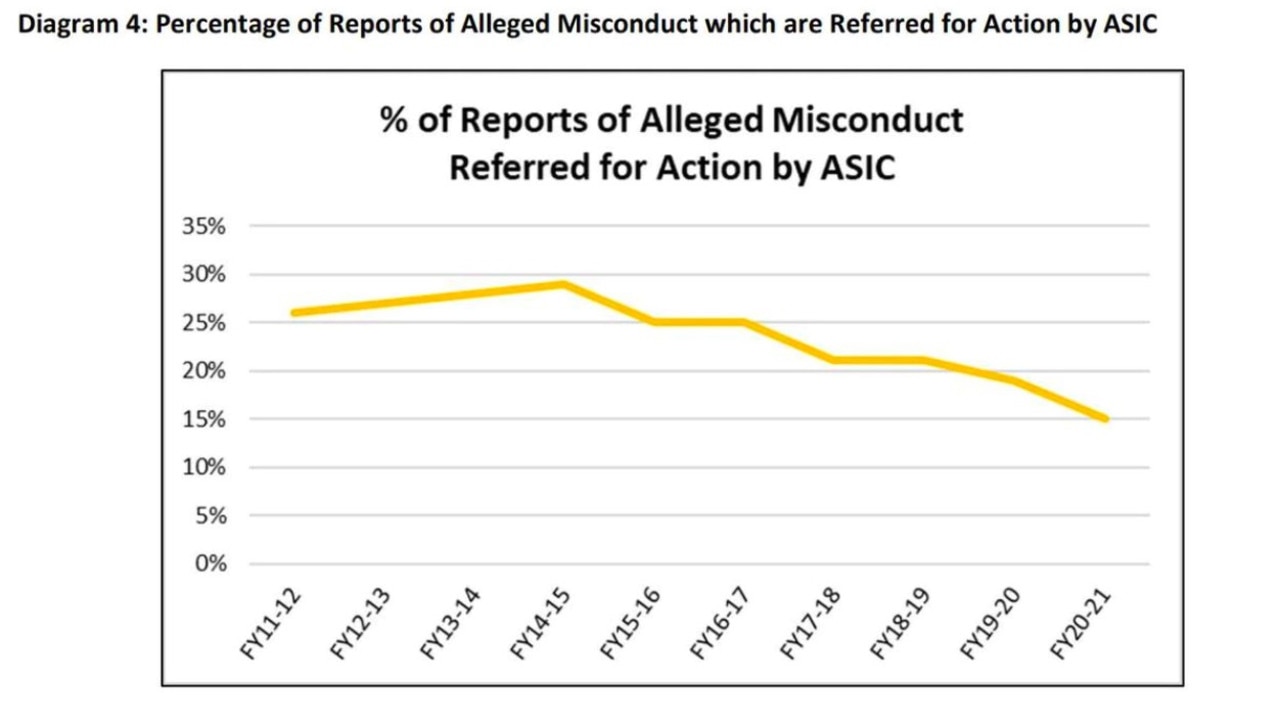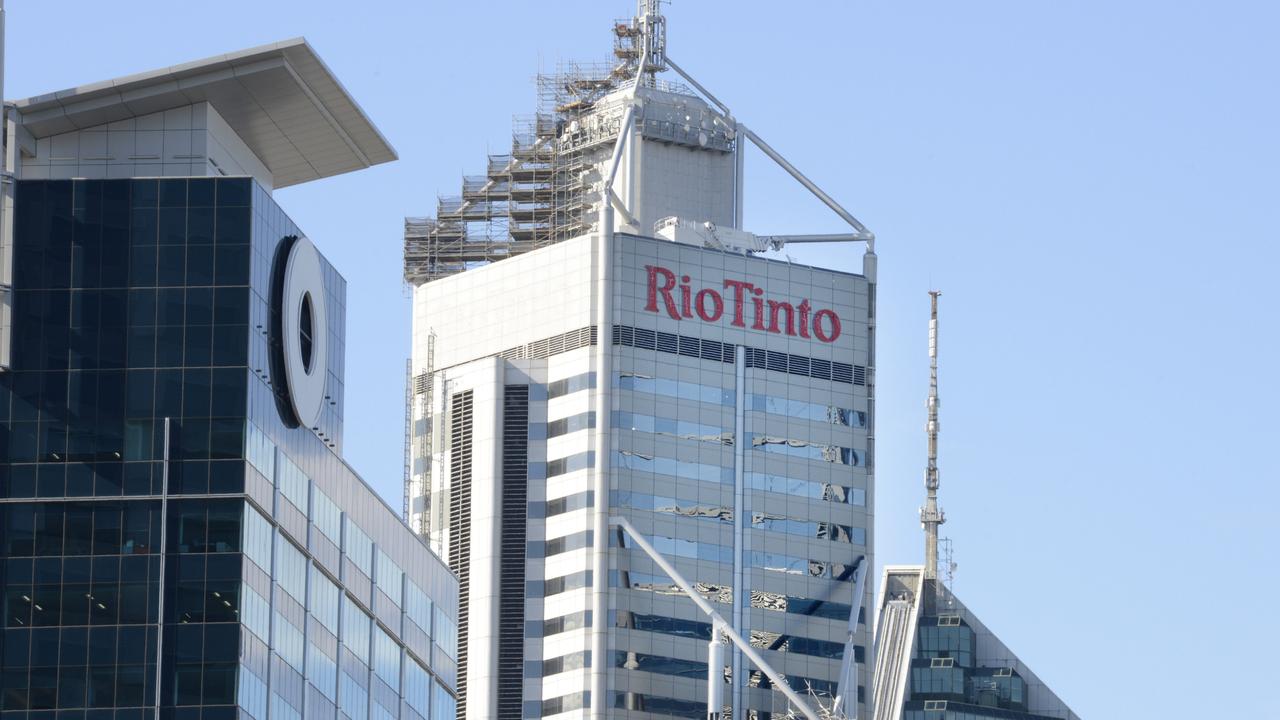Senators launch inquiry into ASIC as $5b problem set to explode
It’s probably happening right under your nose and you have no idea. Now this issue is costing Australia $5 billion every year.

Industry experts and politicians are sounding the alarm over $5 billion problem, which is set to soar in coming months as company collapses reach pre-Covid levels.
They are concerned about illegal phoenixing operations – when a company deliberately goes into liquidation then starts again under a different name, essentially rising from the ashes like a mythical phoenix, to wipe away its debt.
If convicted, the crime carries a penalty of up to 15 years in jail for company directors and accomplices.
This illegal practice directly costs the economy between $2.85 billion and $5.13 billion annually, according to a report commissioned by the Australian Taxation Office in 2018.
Stream more business news live & on demand with Flash. 25+ news channels in 1 place. New to Flash? Try 1 month free. Offer available for a limited time only >
Despite that, an independent analysis of the financial regulator, the Australian Securities and Investments Commission (ASIC), released on October 6 by economist John Adams, found that less than one per cent of financial misconduct reports are investigated.
Now a handful of senators from both major parties have started the process of getting a parliamentary inquiry into ASIC underway.
In an interview with news.com.au, Liberal Senator Andrew Bragg, who chairs the Economics References Committee, said “ASIC is asleep at the wheel”.
“I don’t think ASIC is focused on law enforcement”, he said, adding that he thought their lacklustre enforcement rates was a “cultural issue” and not a resourcing problem.
Last month, on October 27, Mr Bragg called for a motion in the senate which voted in favour of holding an inquiry into ASIC.
ASIC has about 2000 staff and nearly $800 million in funding, according to its latest publicly available report.
“It’s not a question of money and resourcing, it’s a question of focus,” Senator Bragg continued. “The community expectation of ASIC is not particularly good. People need to be made examples of.”
Last week, he called for Australians to share their horror experiences with ASIC over the next three months.
Other senators have also voiced their support for an inquiry, including Senator Louise Pratt, from the Labor Party.
“We should expect better from our Australia’s corporate regulator,” she said earlier this month.
Then there’s Senator Gerard Rennick of the LNP, who told news.com.au: “White collar crime in this country doesn’t get the punishment it deserves.
“Start actually putting these people in jail when they start doing the wrong thing.”
Senator Rennick labelled ASIC “toothless” and added “It’s almost profitable to commit the crime and get the slap on the wrist”.
Malcolm Roberts, a One Nation senator from Queensland, said that “ASIC’s failings deserve an inquiry”.
Senators now have until mid-2024 to carry out an inquiry into ASIC.
The Senate has commissioned a new inquiry into ASIC. Things can only get better. https://t.co/nhbFz5N1ag
— Senator Andrew Bragg (@ajamesbragg) October 27, 2022

Mr Adams’ analysis, pulled from publicly available data from the regulator spanning the last decade from 2011 to 2021, had “worrisome implications”, according to his report.
He found that of the 134,000 reports of alleged misconduct over the last decade, only 1709 progressed to a formal ASIC investigation.
That’s 1.27 per cent of the total reports of alleged misconduct.
Although Australia was hailed as a white collar crime “paradise” by a former ASIC chairman in a 2014 public inquiry, it appears that enforcement actions have gone down, not up, since then, according to Mr Adams.
The annual ratio of formal investigations compared to misconduct reports has declined over the years, peaking in the 2014-2015 financial period at 1.9 per cent.
But the latest financial year which ASIC has released records for, 2020-2021, “saw the lowest annual ratio of investigations to the total reports of alleged misconduct in the past 10 years” at just 0.74 per cent.
Around 81 per cent of collapsed companies have been accused of misconduct but only a tiny portion are investigated, according to Mr Adams. And yet, the percentage of all initial statutory liquidator reports submitted to ASIC in the last decade that ultimately get referred for action is on average only 1.7 per cent.
ASIC disputed these figures, saying that 15 per cent of misconduct reports are “referred for action”. Of that, a smaller number turns into an official investigation.
However, Mr Adams’ research includes self-reported breach reports, liquidation reports as well as tip-offs from the members of the public. ASIC was only factoring in members of the public making reports of misconduct.
An ASIC spokesman said of the 3810 initial reports of possible misconduct received from liquidators in 2020-2021, they requested additional information for 709 cases. Out of those, 18 per cent of those reports led to compliance, investigative or surveillance action.
The @AuSenate’s new Inquiry into @asicmedia is off & running. Submissions are open & we want to hear from you 👉 https://t.co/p1EQQGyM4upic.twitter.com/Aba2mGi5P2
— Senator Andrew Bragg (@ajamesbragg) November 2, 2022
In the last financial year, the government received more than 2115 referrals of suspected illegal phoenix activity, according to the ATO, which runs a 40-person Phoenix Taskforce in conjunction with ASIC.
For some context, since the Phoenix Taskforce was established in 2015, only five matters have successfully been referred for prosecution. Eight directors have also been banned from running a business in that time.
Company collapses are now up 129 per cent since January this year, according to CreditorWatch, in a potential sign that more illegal phoenix activities will come to light.
So far this year, according to the latest ASIC records up until June, 4912 Australian companies have failed and were wound up.
In April, May and June alone, 1567 of companies failed, with business collapses reaching more normal levels as government stimulus during the Covid-19 pandemic was pulled back.
Michael Carrafa, executive director of insolvency firm SV Partners, estimates that currently one in 10 company collapses are the result of illegal phoenix operators.
“It might be one in 10 at the moment, probably in 2018 there was a lot more. It’s probably slowed it down a bit, but it (phoenixing) will come back. Always does,” he told news.com.au.
“We have a huge backlog of zombie companies, insolvent well before the pandemic hit (and) some might have collected government stimulus payments (but) as a result there will be a huge influx of insolvencies.”

John Winter, CEO of the Australian Restructuring Insolvency and Turnaround Association (ARITA), told news.com.au that the current economic circumstances were ideal for shady phoenix operators.
“The environment right now is the perfect storm for phoenixing, particularly in construction, their margins have been wiped out. Desperate people will do desperate things. The likelihood of phoenixing — we haven’t seen circumstances like this for a long time,” he said.
“This has been around for so long. It happened to my parents in 1974, they lost everything to a dodgy phoenixing builder, the fact that this still happens is a bit of a sad indictment.”
He added that it is “inexcusable” and said the full might of penalties had to be exercised to stop this from happening.
“That’s the part that scares people off. If you’re going to make $1 million (from illegal phoenixing), you need to be penalised $5 million (if you’re caught).”
The reality is quite different, Mr Winter explained. “On the off chance you (a company director) get prosecuted, you get a slap on the wrist,” he said.
“When it goes to court they get a $5000 fine when they owed $1 million (to creditors).”
A legal case is “an expensive undertaking. As a regulator you have to be prepared to win some or lose some but you at least have to be prepared to go to court”.

ASIC’s mantra used to be “Why not litigate?” Mr Winter continued. “What we’re not seeing anymore is a willingness to pursue directors (for wrongdoing)”.
News.com.au spoke to a former employee at ASIC, who preferred to remain anonymous, and they said that cases were referred to action if it was deemed they had “value for money”.
“Typically ASIC is looking for an outcome,” the insider said.
“They’re looking for the right matter. They are looking for value for money, they want an outcome, you can’t just pay $20,000 for a report to sit on a shelf.”
This ex-employee added that there was “a perfect profile” for ASIC to pursue a failed company, which would be at least 50 to 100 employees owed wages and owing at least $2 million to creditors altogether “to get ASIC excited”.
That means collapsed companies with less creditors or less money owed from a phoenix operation are rarely pursued, he warned.
What is being done?
Mr Winter is hopeful that phoenixing will become harder to get away with in the future after ASIC introduces a digital identification number for company directors.
The director ID, a unique 15-digit identifier, would make sure companies were being run by real people through being connected to their MyGov account, and it would also allow the system to flag any unusual occurrences, such as a possible phoenixing operation.
However, the compulsory use of this system is still reportedly years away, according to Mr Winter.
In early 2020, a new law was passed to help combat phoenixing by adding a “creditor-defeating disposition” into the existing Corporations Act.
This allows liquidators to pursue directors personally. They can seek damages and monetary compensation for an unfair transaction and can also request for ASIC to make an order that the property or asset be returned to them.
However, to date, so far the new law has only been used in one case, after the liquidators made an application for the sale of business assets from Intellicomms Pty Ltd, which was in liquidation, to the defendant, Tecnologie Fluenti Pty Ltd, to be returned to them.
Members of the community who know or suspect illegal phoenix activity can make an anonymous report by visiting ato.gov.au/tipoff or calling 1800 060 062.
alex.turner-cohen@news.com.au




